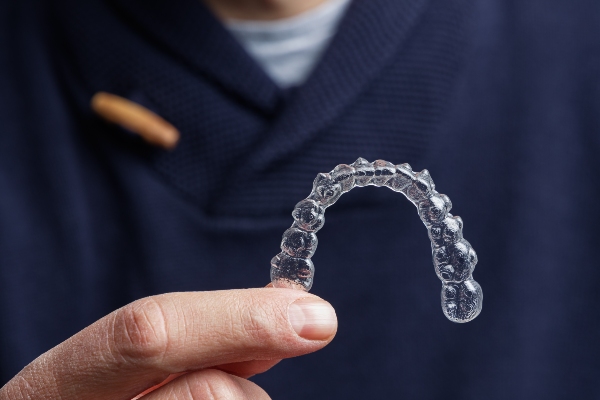Can You Get Cavities with Ceramic Crowns?

The best treatment for cracked, decayed, discolored or weakened teeth is protective ceramic crowns. Ceramic crowns are custom-made to match the natural tooth's shape and color. Compared to all other types of dental crowns, ceramic crowns are superior in appearance and resistance to staining. These caps are meant to protect the tooth from future damage or decay and to support a weakened tooth structure.
These tooth-shaped caps are made from synthetic materials that are resistant to tooth decay, but can you still get a cavity with a ceramic crown?
Ceramic crowns and cavities
Ceramic crowns are made from a glass-based material (also known as porcelain). This unique material is mild enough that it does not cause any irritation in the mouth but is sturdy enough to last for decades.
When the crown is attached to the tooth, there is a small border around the restoration known as the margin. The area of the tooth that is still there, both above and below the gum line, is still vulnerable to cavities.
Cavities can also occur underneath the crown. Ceramic crowns are excellent at protecting teeth from further damage or decay. But they can harbor bacteria if not properly cared for. If a cavity forms underneath the crown, the cap will need to be removed and the tooth decay eradicated before replacing it.
How to prevent cavities when you have a ceramic crown
To prevent cavities underneath and around the edges of a ceramic crown, clean it properly after every meal (or at least twice per day). Since tooth decay can still affect the natural tooth, be sure to floss once daily to make sure bacteria does not reach underneath the crown.
Although a crown itself cannot get decay, the underlying tooth is still vulnerable to bacterial attack. Tooth decay is actually the result of bacteria growing into colonies when the mouth is not cleaned well enough or often enough. When acid in the mouth digests carbohydrates and leftover food debris, it forms into a thin film known as plaque.
This acid eats through the enamel and forms small holes of decay, otherwise known as cavities. As you can see, preventing cavities depends on cutting off the bacteria from their food source. Cleaning the mouth after every meal and eating calcium-rich foods that are high in protein are the only ways to make sure the crowned tooth is cavity-free.
With a crown, patients will still need frequent dental checkups. The dentist will most likely recommend having an X-ray done on a regular basis. This way, if any decay occurs it can be diagnosed and treated quickly to minimize any damage.
In many cases, small cavities underneath ceramic crowns can be successfully filled without any risk to the crown.
Ask us about caring for your ceramic crown
Each dental patient is different. If you have any questions about caring for your ceramic crown, we invite you to contact us today.
Request an appointment here: https://stonecanyondental.com or call Stone Canyon Dental at (972) 226-6655 for an appointment in our Sunnyvale office.
Check out what others are saying about our services on Yelp: Read our Yelp reviews.
Recent Posts
Getting a dental crown is a seamless procedure that is done in dental offices every day. There are various reasons to get a dental crown, which will play a role in how the process goes. For example, for those getting a crown to finish the tooth replacement process after an implant has been inserted, the…
If a patient suffers from misaligned teeth or a misaligned bite, Invisalign® clear aligners might be the solution they need to ensure their smiles stay bright – and straight! As one of the most trusted clear aligner systems will help straighten teeth and correct the bite without wires and brackets, meaning that patients can smile…
Your dentist may recommend a dental bridge if your case needs it. Every patient has a different set of needs. Proper assessment allows the dentist to suggest the right dental replacement. Here are the details on when a dental bridge may become your dentist’s recommendation.Dentists often encourage their patients to stop consuming tobacco. Following this…
When it comes to replacing missing teeth, dental bridges are a popular and reliable option that offers versatility by restoring one to four missing teeth in a row. Along with restoring a smile by replacing missing teeth, a dental bridge offers multiple benefits to one's oral health while addressing several issues simultaneously.Tooth loss can occur…







